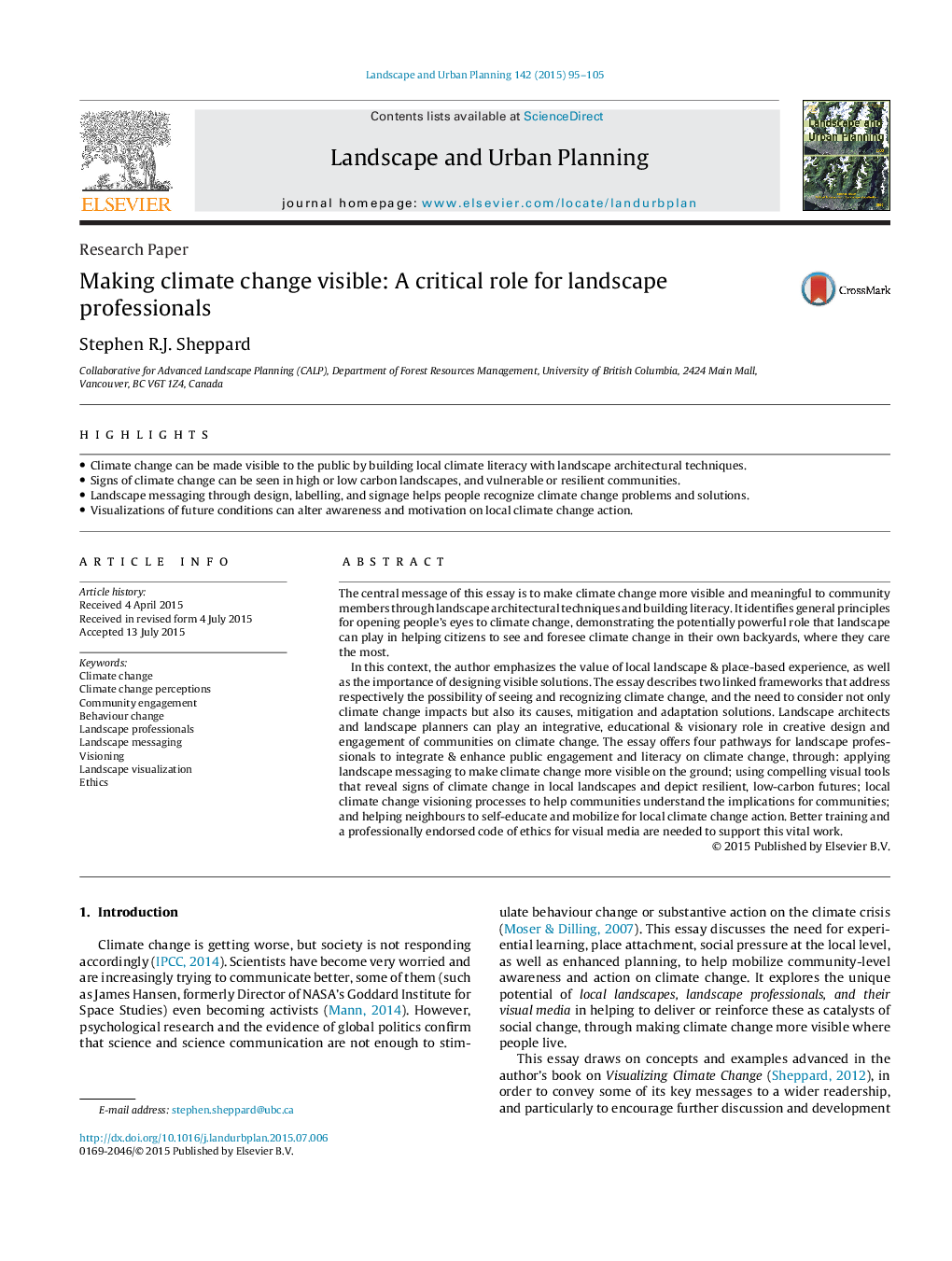| Article ID | Journal | Published Year | Pages | File Type |
|---|---|---|---|---|
| 7461058 | Landscape and Urban Planning | 2015 | 11 Pages |
Abstract
In this context, the author emphasizes the value of local landscape & place-based experience, as well as the importance of designing visible solutions. The essay describes two linked frameworks that address respectively the possibility of seeing and recognizing climate change, and the need to consider not only climate change impacts but also its causes, mitigation and adaptation solutions. Landscape architects and landscape planners can play an integrative, educational & visionary role in creative design and engagement of communities on climate change. The essay offers four pathways for landscape professionals to integrate & enhance public engagement and literacy on climate change, through: applying landscape messaging to make climate change more visible on the ground; using compelling visual tools that reveal signs of climate change in local landscapes and depict resilient, low-carbon futures; local climate change visioning processes to help communities understand the implications for communities; and helping neighbours to self-educate and mobilize for local climate change action. Better training and a professionally endorsed code of ethics for visual media are needed to support this vital work.
Related Topics
Life Sciences
Agricultural and Biological Sciences
Ecology, Evolution, Behavior and Systematics
Authors
Stephen R.J. Sheppard,
